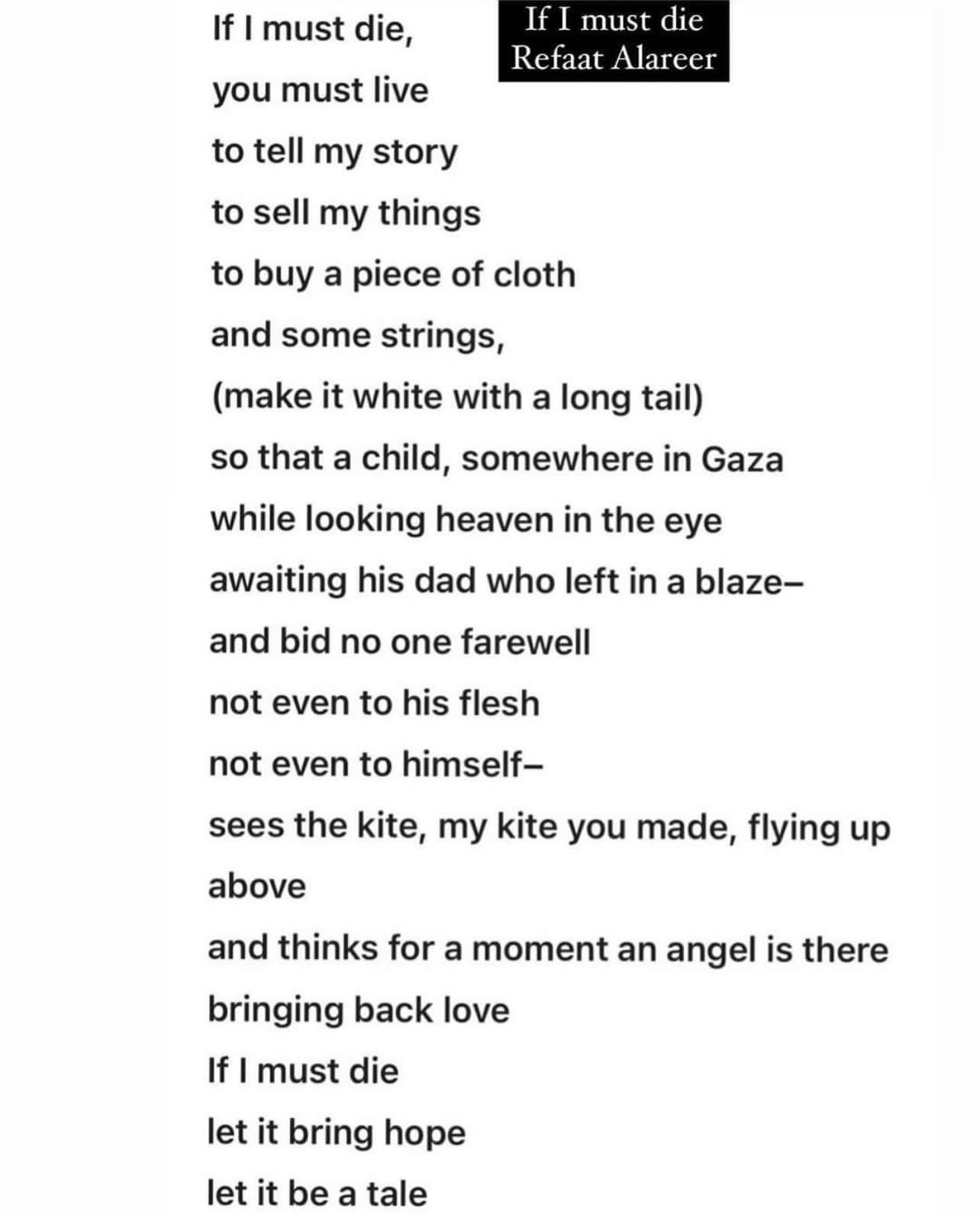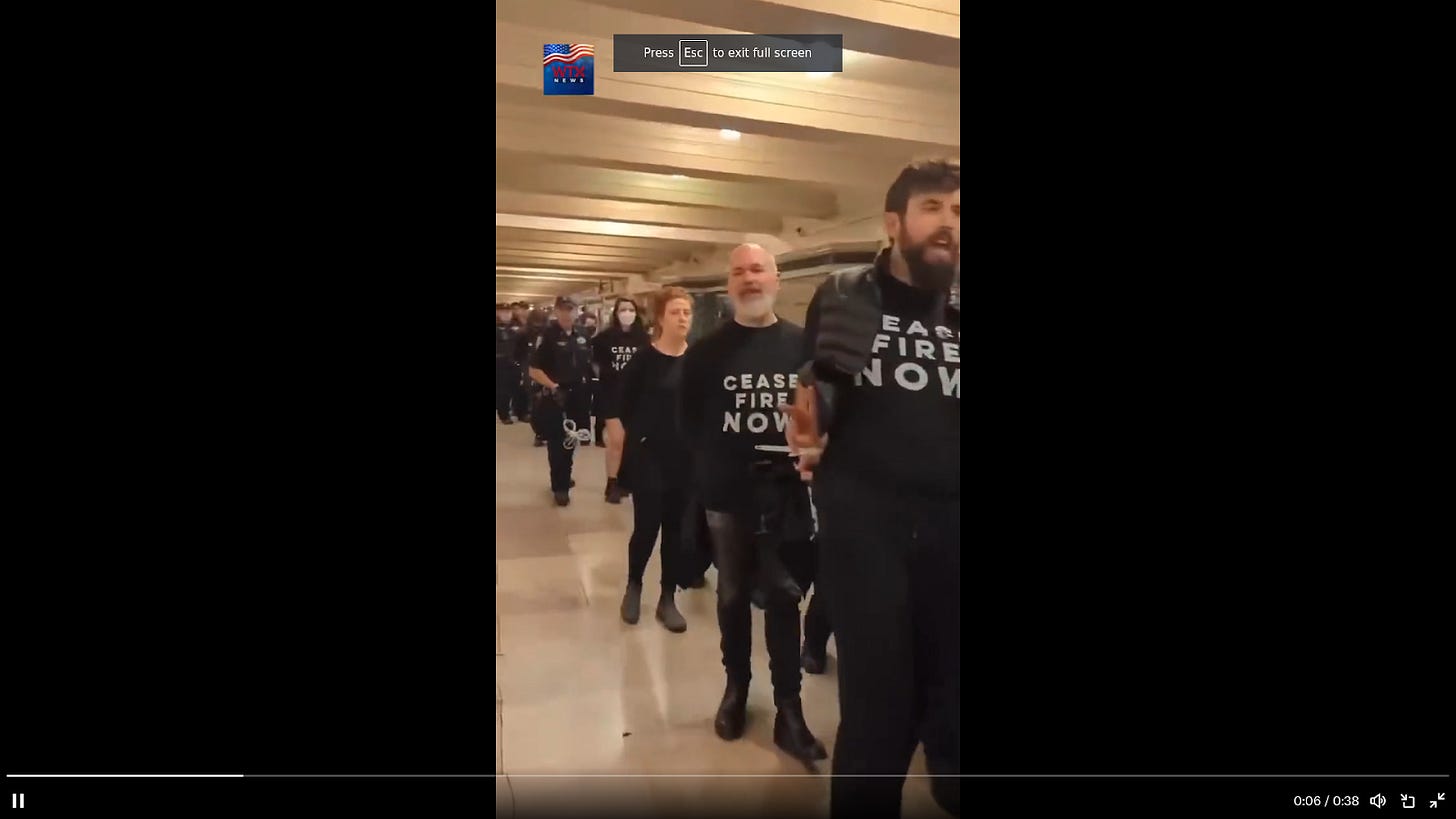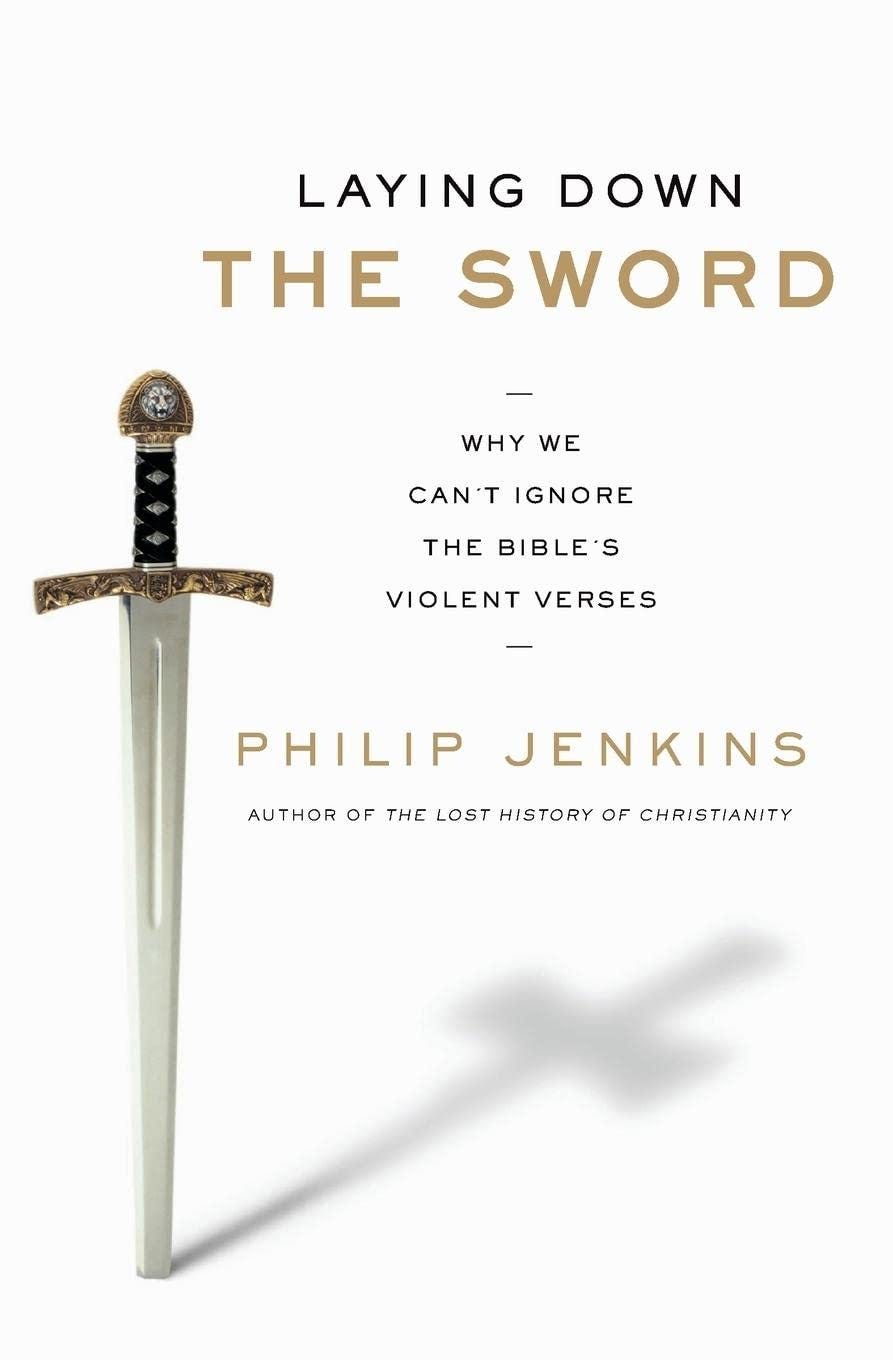Herem, Amalek: Zionists mark dissident Jews for unrestricted warfare
Part 2 of a series on how Zionism is an anti-Jewish, racist ideology
[On the very last page of Siegebreakers I wrote: “If this book has sparked a further interest in Israel/Palestine or in Gaza in particular, the reader might find fiction from young Gaza writers to be of particular interest. Atef Abu Saif’s edited collection The Book of Gaza: A City in Short Fiction, and Refaat Alareer’s collection Gaza Writes Back: Short Stories from Young Writers in Gaza, Palestine, are full of beautiful short stories. The Israelis just murdered Refaat and his family in their home. He never knew me but I knew him. This was his course on poetry And his last poem: “If I must die / let it bring hope / let it be a tale”. I can’t be worthy of Refaat but like him my only weapons are words. So we carry on.]
Zionists revoke anti-genocide Jewish membership and declare them “un-Jews” and herem
A month into Israel’s genocidal campaign, after nearly 10,000 had been killed including around 4,000 children, Zionist writer Avi Mayer, wrote a column in the Jerusalem Post in November announcing the expulsion of non-Zionist Jews from the community.
Meyer in turn quotes his former employer Dan Elbaum of the Jewish Agency for Israel in North America, advocating the same: “As much as I would not like to give up on a single Jew, I have given up on them. For me, they are deserving of herem (formal exclusion from the Jewish people).” Meyer mentions another column by Natan Sharansky and Gil Troy, which argues that anti-Zionism is incompatible with being Jewish:
“The anti-Zionists know exactly what they are doing, and what they are undoing. They are trying to disentangle Judaism from Jewish nationalism, the sense of Jewish peoplehood, while undoing decades of identity-building.”
“We call these critics ‘un-Jews’ because they believe the only way to fulfill the Jewish mission of saving the world with Jewish values is to undo the ways most actual Jews do Jewishness,” Sharansky and Troy wrote. “They are not ex-Jews or non-Jews, because many of them are and remain deeply involved Jewishly, despite their harsh dissent… For many of these un-Jews, the public and communal staging of their anti-Israeli and anti-Zionist beliefs appears to be the badge of a superior form of Judaism, stripped of its unsavory and unethical ‘ethnocentric’ and ‘colonialist’ baggage.”
And to Sharansky and Troy, the quintessential “un-Jew” was of course a leftist, Rosa Luxemberg. They quote Red Rosa saying: “I have no room in my heart for Jewish suffering,” she raged. “Why do you pester me with Jewish troubles? I feel closer to the wretched victims of the rubber plantations of Putumayo or the Negroes in Africa... I have no separate corner in my heart for the ghetto.”
Meyer’s column ends with a call to action:
“The time has come to regard these individuals and groups as having separated themselves from the Jewish community and the Jewish people. As we at the Post wrote in an editorial on the subject this week, “anti-Zionist Jews are not representative of the Jewish community and they don’t speak in its name. They are as Jewish as the Westboro Baptist Church is Christian.” While they may still technically be Jewish due to their parentage or conversion, while they may lead superficially Jewish lives, we can no longer consider them part of Klal Yisrael.”
For those Jewish people targeted by the Jerusalem Post column, the cry of “Not in Our Name!” is no longer the point. They aren’t doing it in the name of these Jewish people: Zionists have declared that anti-Zionists have not merely deviated - they are no longer Jews at all.
Being declared “un-Jews” has consequences. In the Mea Shearim neighbourhood of Jerusalem, protesting orthodox Jews were beaten by police in dramatic scenes on November 1.
Scenes of Jews protesting in New York’s Grand Central Station and in Oakland, among other places - the kinds of acts that have led to their apparent expulsion from Jewishness by Zionists - have also led to scenes of mass arrests of Jews by police:
Oakland
New York
The other Abrahamic religions have been through sectarian splits: Sunni and Shia in Islam; Orthodox, Catholic and Protestant in Christianity; if, as some tongue-in-cheek socialist writers have argued, that communism too is a form of Abrahamic religion, then Trotskyism and Stalinism could also be considered sects, products of doctrinal split or schism.
With the rise of the Islamic State (“ISIS”) after 2015, Middle Eastern analysts labeled as “takfiri” the ISIS declaration that Shia, Alawi and other sects to be non-Muslim. The outcome of this analogous “herem” effort by Zionists to expel anti-Zionists will not likely be a successful expulsion, but it could lead to a split, with both sides laying claim to the Jewish identity.
Herem. Recall that Elbaum, quoted by Meyer, suggested that anti-Zionists were worthy of herem. The concept of herem has connotations well beyond “formal exclusion from the Jewish people”. Baylor University religion professor Philip Jenkins writes about “herem warfare” in the 2014 book Laying Down the Sword: Why We Can’t Ignore The Bible’s Violent Verses.
From Chapter 1:
“Herem, usually interpreted as “utter destruction,” is the single most frightening term in the whole Bible…The noun herem represents a “ban,” but translators use different forms when describing how a city is given this status: it is “devoted” or “accursed” to God, or “set apart for YHWH under a ban.” Few Bible translations accurately give the full connotations of the language, generally using a phrase such as “destroy utterly,” but the meaning is clear. Every living thing in the doomed city must be destroyed wholly. Any valuables, any gold or silver, must be consecrated to God and given to the priestly caste, to be reserved for ritual use…”
“...In practical terms, this kind of warfare is unconditional, in that defeated inhabitants have literally no chance, no way out, no option to surrender. Once banned, once devoted to God, they cannot win their lives by offering to convert to the faith of the conquerors, to raise an altar to YHWH. They cannot agree to hand over all their possessions, to abandon the land forever. They can’t even voluntarily accept the most degrading form of slavery or sexual submission. They are pledged to death. As the story of King Saul demonstrates, God left no room for waverers or fainthearts. Far from being marginal or incidental to the biblical tradition, this type of genocidal warfare was associated with some of Israel’s greatest heroes, including Moses, Samuel, and Joshua.”
Whatever Elbaum was signaling by using the word, the full implications of herem are terrifying. The influence of the concept on US and Israeli conduct of war is clearly revealed in John Grenier’s book The First Way of War, Roxanne Dunbar-Ortiz’s an Indigenous People’s History of the United States, and Israel’s current warfare on Gaza. Jenkins elaborates on its influence:
“While mainstream thinkers constructed well-thought-out ideas of “just war,” placing appropriate limitations on military conduct, extremists sought to restore the ruthless practices of herem and biblical holy war, war without mercy… Christians put their beliefs into practice, basing their actions explicitly on scripture. The resulting violence was at its peak in Europe during the religious wars of the sixteenth and seventeenth centuries, when each faction labeled its (Christian) opponents as Amalekites fit only for slaughter. To take just one example of many, after Scottish Protestants defeated an Irish Royalist army in 1646, their clergy advisers ordered a complete massacre of prisoners. Scots soldiers drowned eighty women and children, while “again and again were the conquerors told that the curses which befell those who spared the enemies of God would fall upon him who suffered one Amalekite [Catholic] to escape.” Everyone is an Amalekite or a Canaanite to somebody.”
In her book The Joshua Generation: Israeli Occupation and the Bible, scholar Rachel Havrelock talks about herem as well.
Havrelock writes that “The specific tactic of Joshua’s holy war is the ḥērem, the ban on goods confiscated from the enemy that also implies total destruction of life (Josh 6:17–19).”
What this boils down to is that leading Zionist intellectuals in important journals are willing to cast out those Jews who have a different political standpoint - cast them out into the status of herem, worthy of 'unconditional warfare’ of the type that Israel is currently waging on Gaza. The Zionist stance on dissenting Jews is notably not “right or wrong, these are our people”; it is not Voltaire’s “I despise what you say but I will defend your right to say it”; it is “you are hereby declared herem.” The declaration offers another moment to reflect on the anti-Jewish nature of Zionist ideology.










"the public and communal staging of their anti-Israeli and anti-Zionist beliefs appears to be the badge of a superior form of Judaism, stripped of its unsavory and unethical ‘ethnocentric’ and ‘colonialist’ baggage" How does one write this using "scare quotes," (I had to look that term up!) without hearing the irony of what one is saying? Once again, your writing is extremely informative and helpful! And hearing from Rosa Rot is always welcome! Thank you!